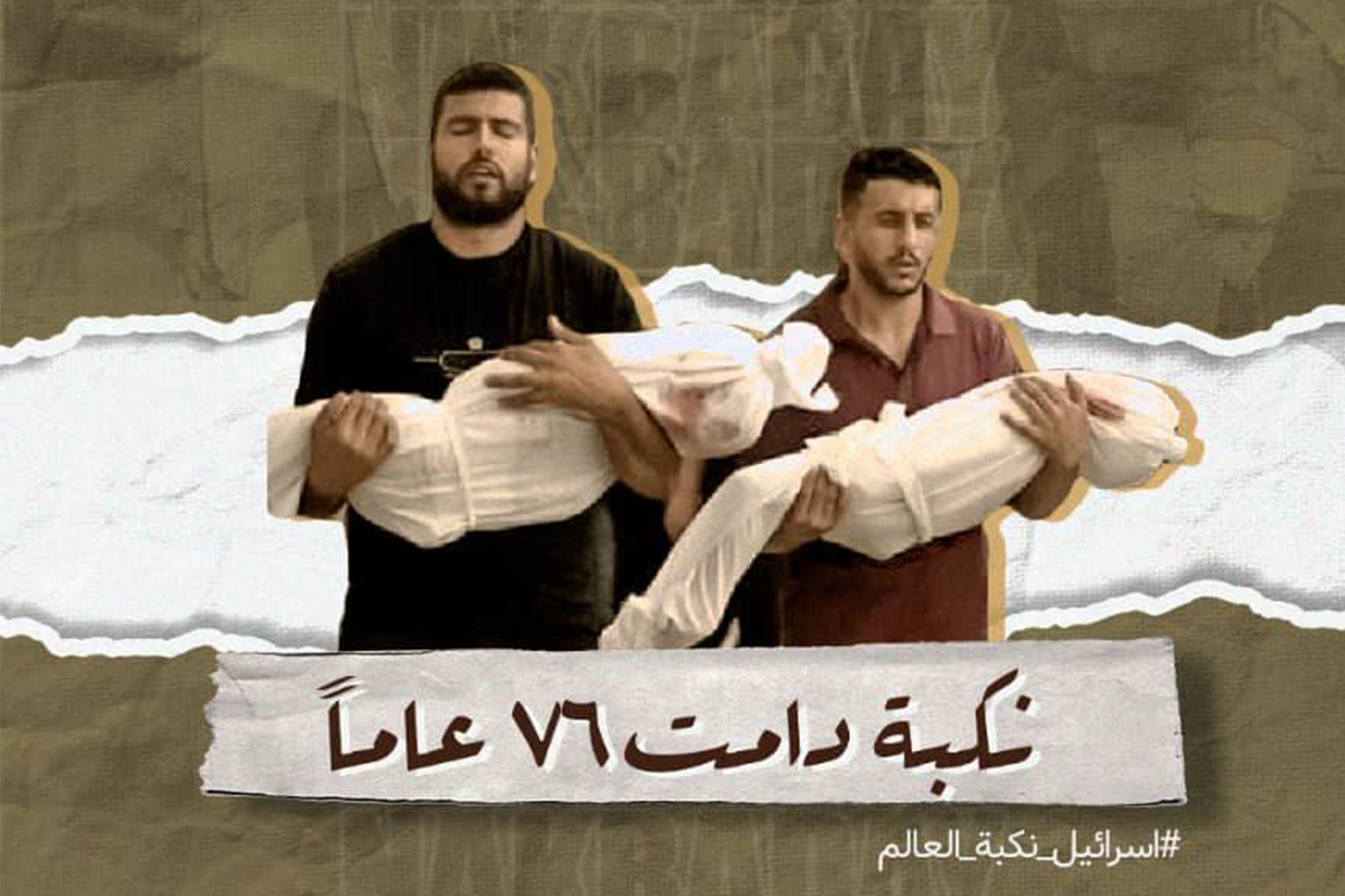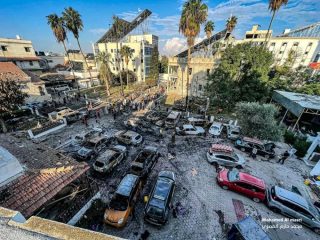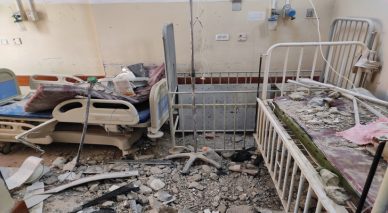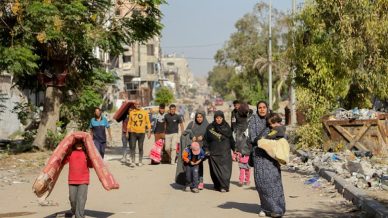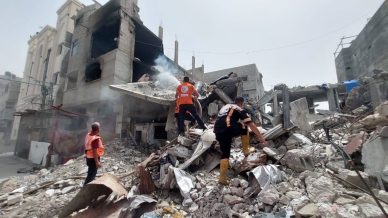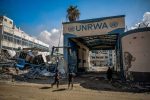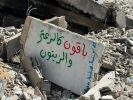GAZA, (PIC)
These days mark the anniversary of the Palestinian Nakba of 1948, a time when the people of Gaza are experiencing a new catastrophe, one that Israel has sought to impose through bombing, killing, and destruction for over 220 days. Yet, the steadfast spirit of this resilient people remains unbroken.
The horrors faced by Palestinians in the Gaza Strip—killing, displacement, starvation, thirst, and repeated forced migrations—echo the great Nakba that occurred 76 years ago. The Palestinian people have realized that resistance and steadfastness on their homeland, no matter the sacrifices, are the only ways to prevent its recurrence.
The fifth displacement
Umm Mohammad, a widow caring for six children aged 7 to 17, has been displaced from Beit Lahia since October 8th and has moved multiple times, now reaching her fifth displacement.
Umm Mohammad recounts, “On October 8th, I left with my children under the shellfire and explosions, moving to a nearby school, hoping for safety. We took only a few household items, expecting to return soon.”
She has since moved from the school to Sheikh Radwan, then to Nuseirat camp, then to Rafah, and now, with the start of the Israeli military operation in Rafah, she moves again to Deir al-Balah.
“We have no money left,” she says. “We’ve spent everything. Every time we were displaced, we left under bombardment and started anew to find shelter, a tent, and necessary supplies. This has exhausted us financially, making even displacement impossible today.”
According to the Palestinian Information Center correspondent, many families in Rafah have decided not to flee, not out of a desire to stay under bombardment, but because they cannot afford the transportation costs, which range from 1,000 to 2,000 shekels per trip.
Surrender is not an option
Abu Sami, a government employee from Rafah, has not received his salary since the beginning of the war. He decided to stay with his family in the Shabora camp. He explains, “It’s not about bravery or a desire to die; I simply can’t afford to move our belongings or secure a tent and a new place.”
Abu Sami continues, “Seven months of war, rising prices, and shortages of life’s essentials have drained everyone’s savings. Many, like me, are now completely broke and unable to even consider displacement.”
He emphasizes that people are experiencing what he calls “the courage of despair,” stating, “People are steadfast, that’s true, but the endurance of many is not because they possess exceptional resilience but because they have no other option but to hold on. Surrender is not in our vocabulary here in Gaza.”
Inherent virtues
Amidst the bleak humanitarian and societal conditions in Gaza, small acts of solidarity reveal the true spirit of the Palestinian people. Many spontaneous and personal initiatives have emerged to help those wishing to flee.
Families living in central Gaza with empty land have offered to host the displaced, preparing their land to accommodate them. Some drivers and owners of transport vehicles have volunteered to transport people from Rafah for free, provided they can obtain gas or diesel, though the success of this initiative has been limited due to the blockade and the Israeli occupation army’s restriction on fuel entry.
Youth groups have also launched volunteer initiatives to help the displaced by setting up tents, preparing adjacent areas, and providing water and essential supplies, as well as food in collaboration with local charities and benefactors.
No safe place
The United Nations Relief and Works Agency (UNRWA) estimates that approximately 450,000 people have been forcibly displaced from Rafah since the beginning of the Israeli offensive on the sixth of this month (May). The agency’s statement a couple of days ago highlighted the continuous exhaustion, hunger, and fear faced by families who keep fleeing in search of safety, stressing that “there is no place to go, and there is no safety without a ceasefire.”
The Israeli occupation forces continue to block the Rafah border crossing and the Kerem Shalom commercial crossing, amidst warnings of an unprecedented humanitarian disaster.
Since October 7th, the Israeli military has continued its aggression on Gaza by land, sea, and air, resulting in the deaths of 35,173 citizens, mostly children and women, and the injury of 79,061 others. These figures are not final, as thousands remain buried under the rubble.
Meanwhile, the Palestinian resistance continues to defend its people and land, intensifying operations against the occupation forces, particularly in response to the incursion into Rafah and the seizure of the crossing. These resistance efforts in the north and south of the Strip have led to the destruction of many Israeli army vehicles and numerous casualties among its soldiers.

